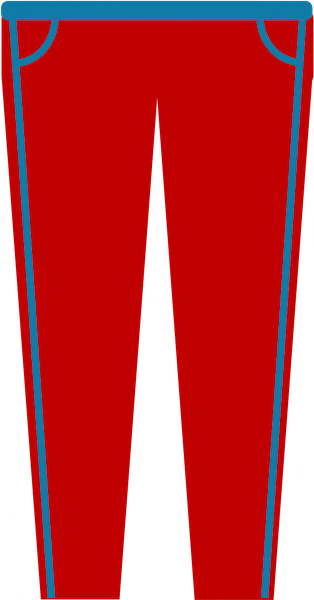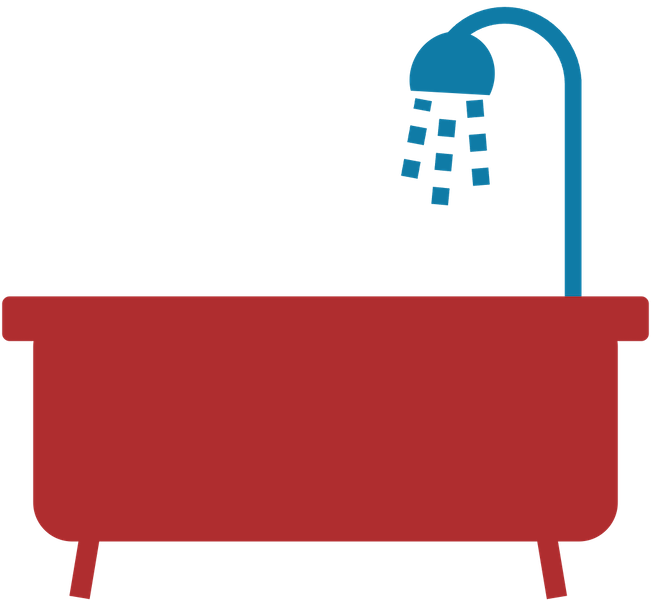One great way to defeat denial and steer clear of greenwashing is to see good examples from real-life businesses. On this page, we highlight companies and products that are truly promoting sustainability in their business practices.
| Company | Product example | In-store/online | Success/role model features | Improvements/clarity needed | URL |
| Kind Laundry | Laundry detergent | Online and available through partnered retailers. | The product is designed to reduce plastic containers for laundry detergent. This also reduces the weight/space, emissions (by 94%) and water to ship. The sheets are packaged in recyclable paper. Ingredients are plant-based, hypoallergenic, biodegradable, and with no toxic chemicals | More transparency on labor practices, where paper is sourced from and other information would be useful. Though the paper is recyclable, municipal recycling facilities have their limitations. | link |
| Ardent goods | Soap, sponges, spades | Online and available through partnered retailers. | The products are designed to reduce waste and use non-toxic ingredients. Packagine is biodegradable or recyclable or “multiple use.” They also use “sustainable textiles.” All items are made in-store in small batches (which can improve accountability) in California. | Saying that all packaging is multiple use is a bit tricky, given that even most plastics are ‘reusable,’ however Ardent uses materials like ceramic for ‘multiple use’ which are high quality and built for ‘circular use’. | link |
| Marley’s monsters | Reusable paper towels | Online, in-store, and available through low-waste retailers. | Products are designed as zero-waste alternatives to conventional single-use items. All items are made in Oregon, which improves transparency and can reduce shipping emissions to customers. All packaging is recyclable or compostable, including tape and acid-free ink. They manufacture also using their own waste scraps (and partnering with other organizations to reuse them). They use reusable items in their own staff areas, as well. They are BRING certified for sustainability. The store also sells external low-waste products, supplied from domestic suppliers. | Source materials may be supplied internationally. More information on source sustainability (e.g. fabrics) would be useful. | link |
| Sqwishful | Sponges | Online and in major retailers (e.g. Whole Foods). | Designed to replace disposable cleaning utensils, and remove petroleum-based plastics. Sponges made from renewable wood pulp, loofahs are from natural luffa and wood pulp, brushes are from hemp sisal and bamboo and the materials are compostable. Brushes also can have replacement heads, continuing the handle’s reuse after wear. They intentionally supply from women, gender non-binary, and minority owned vendors and they have a goal to increase this. They use sugarcane-based packaging (that would have been wasted and gone to landfill) to be free from plastic and also reduce tree-based packaging to reduce deforestation – the packing is recyclable and compostable. They also use biodegradable/bio-based plastic, which is compostable, which uses less water to produce. They say they “plant trees with every order of our FSC certified tissue paper and stickers.” Packing is recycled kraft paper envelopes. They print with soy-based inks and sponges are compressed and take up less space to ship (which means fewer transportation emissions per item). Sponges are made in the US from North American wood pulp (which reduces the transportation distance – and emissions – between supply, processing and consumption (since they are sold in the US, as well). Scrubbers and brushes are made in China from local ingredients. | Bioplastics are still plastics and there are many issues with the US recylcing system. Plastics can also harm ecosystems before they are able to decompose (e.g. if they are eated by a sea-animal). However, one good thing (a pro) Sqwishful does is acknowledge this in an article on their website, draw attention to the drawbacks and educate the consumer. Any shipping-based business entails greenhouse gas emissions from transportation. There is little information about the facilities in which production takes place and the safeguards there (e.g. for labor, environmental regulations). And manufacturing in China entails high emissions to transport to a US-based market and less ability to monitor manufacturing (and less regulation). | link |
| Cleancult | Detergent, soap | Online | Plant-based, biodegradable ingredients. Recyclable packaging, made in the USA packaging. Carbon neutral shipping (through partnership with Carbonfund). Product designed to replace plastic bottles/refills. Products are refills delivered in cartons, that can be recycled or sent back, and glass bottles can be bought to fill. Cruelty-free. Includes a transparent list of ingredients. Dishwasher pods are covered in biodegradable, water-soluble materials. Refill carton caps are made from plant-based materials (non-plastic) and is compostable. Does not use palm oil (which is often tied to deforestation). Cartons are lined with HDPE (plastic), which can be recycled. | Recycling is not perfect in the US, especially for plastics, including HDPE. Additionally, shipping is emissions intense, especially to ship heavy items, like liquids. Carbon neutrality can be tricky. | link |
| Truearth | Laundry detergent | Online and available through partnered retailers. | Vegan and no animal testing. Made in Canada (higher regulations for environmental protection) and shorter distance to ship to a North America-based company. For every subscription sold, they donate loads of laundry to front-line workers, food banks, and others in need. No plastics in packaging (paper packaging), and less weight (the detergent is in dehydrated strips) than shipping liquid detergents. Designed to replace the plastic-packaged detergents. Includes a transparent list of ingredients. Palm oil free (palm oil is often linked to deforestation). | Shipping entails emissions from the trucks or airplanes that is used for transport, so keep that in mind when buying online. Little information is provided about packaging at the shipment level (e.g. if packing labels are recyclable or shipping for non laundry-strip products, such as dryer balls), but they do state that packing is free of plastics. It is unclear if inks are plant-based and where non-laundry strip items are made (such as their utensil kit). | link |
| Dropps | Dishwasher detergent pods | Online and available through partnered retailers. | Packaging is recyclable/compostable, shipping is carbon neutral (based on renewable energy projects, detailed on the website in a partnership with Clearloop), and products are designed to replace those with plastic packaging or ingredients. Packages are designed to prevent excess packaging. Their website includes a page to help overcome accessibility barriers and to keep Dropps from selling information, as well as privacy details. This aids in transparency. They don’t test on animals and are vegan. Products are made in the USA (which has strong environmental regulations and reduces shipping emissions due to proximity). Awarded 2017 EPA Safer Choice Partner of the Year. They provide a transparent and detailed list of all products, including the purpose. Cardboard packaging is certified by FSC and plants certified by Sustainable Forestry Initiative for sustainable forestry. Packing tape is recyclable. Shipping liners are recyclable and labels are also compostable. | While there is great transparency on the ingredients list of the products, it isn’t shown if they are harvested sustainably or not. Carbon neutrality can be tricky, as shipping-based businesses entail lots of emissions – Dropps is using a local, accountable solution, though, which can assuage some concerns. | link |
| Celsious | Laundry detergent | Online and available through partnered retailers. | They use paper packaging (including tape) and plant-based packing peanuts. The company sells laundry-care products, and operates a New York City laundromat. The laundromat uses biodegradable soap without synthetic ingredients. They sell their own and others’ laundry products on their website. Their products (e.g. their detergents) are packaged in cans and are biodegradable, non-toxic. | If customers don’t bring their own washable laundry bag, a plastic/paper temporary bag is provided – this is not waste-free (they provide the option to purchase a reusable bag from them, which is made from recycled plastics. Be aware that recycled plastics can still shed microplastics, but do divert waste, which is good). Some of the products they sell online (not their own brand) use plastics. More transparency on things like the water efficiency of their washers would be helpful to know about their sustainability. | link |









